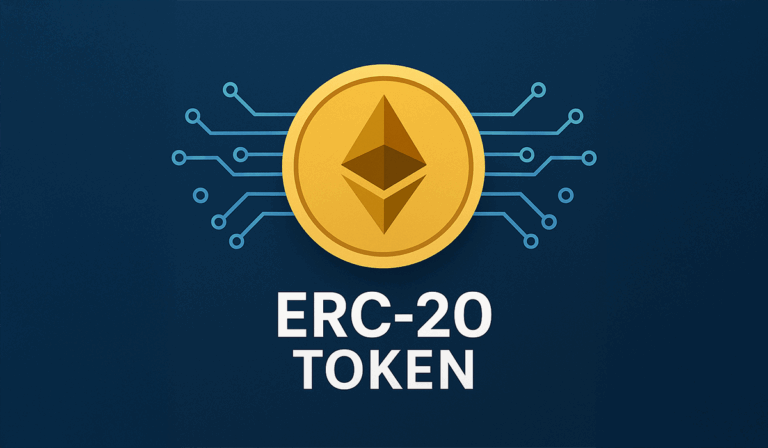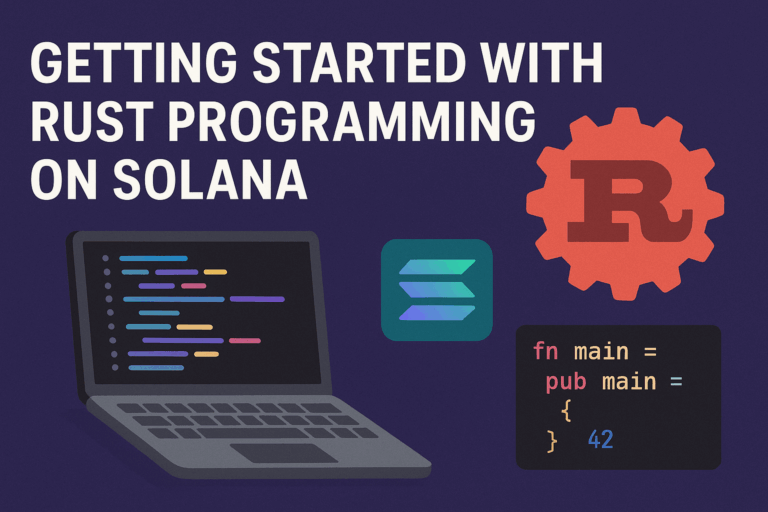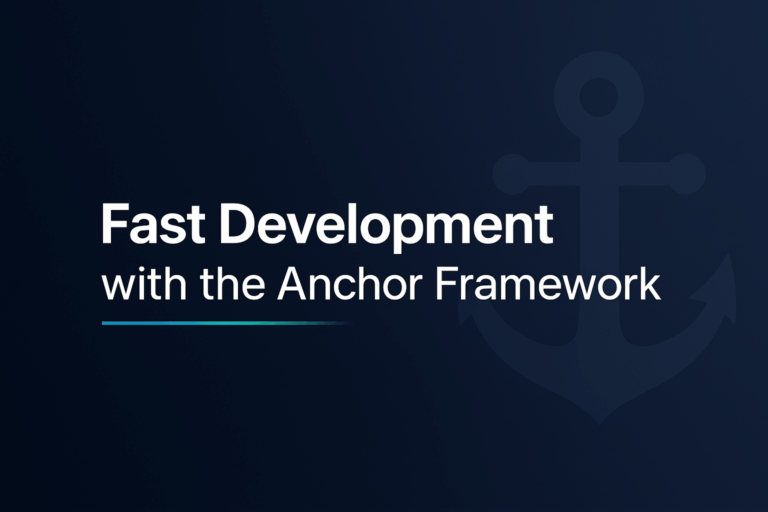How to Develop Smart Contracts on Solana
The blockchain ecosystem has evolved beyond simple cryptocurrency transfers, and smart contracts are at the heart of this innovation. Among the various blockchains, Solana has emerged as a high-performance platform for decentralized applications (dApps). Thanks to its low fees, high throughput, and growing ecosystem, Solana is a popular choice for developers. In this guide, we’ll walk you through how to develop smart contracts on Solana, from the fundamentals to deployment and best practices.
Table of Contents
What Are Smart Contracts on Solana?
Unlike Ethereum’s Solidity-based contracts, Solana smart contracts are typically written in Rust, C, or C++. On Solana, smart contracts are known as programs. These programs are deployed on-chain and can be interacted with by client applications, wallets, or other programs.
Key Characteristics
- High scalability – Solana can handle over 65,000 transactions per second.
- Low transaction fees – fractions of a cent per transaction.
- Programs are stateless; state data is stored in accounts.
Why Build Smart Contracts on Solana?
Solana offers several advantages for developers:
- Performance: Solana’s Proof of History (PoH) and Proof of Stake (PoS) hybrid model ensures high throughput.
- Cost Efficiency: Gas fees are minimal compared to Ethereum.
- Growing Ecosystem: DeFi, NFTs, and Web3 projects thrive on Solana.
Prerequisites for Solana Smart Contract Development
Before diving in, make sure you have the following:
- Knowledge of Rust programming language.
- Basic understanding of blockchain concepts.
- Solana CLI installed on your machine.
- Anchor framework (optional but recommended).
| Tool | Description | Installation |
|---|---|---|
| Rust | Primary programming language for Solana smart contracts. | curl –proto ‘=https’ –tlsv1.2 -sSf https://sh.rustup.rs | sh |
| Solana CLI | Command-line tool to interact with the Solana blockchain. | sh -c “$(curl -sSfL https://release.solana.com/stable/install)” |
| Anchor | Framework for building Solana programs efficiently. | cargo install –git https://github.com/project-serum/anchor anchor-cli |
Step-by-Step Guide: Developing Smart Contracts on Solana
Step 1: Install the Solana CLI
After installation, confirm with:
solana --versionStep 2: Configure Solana CLI
Switch to the testnet or devnet for development:
solana config set --url https://api.devnet.solana.comStep 3: Create a New Solana Program
If using Anchor, initialize a new project:
anchor init my_solana_programStep 4: Write Your Smart Contract in Rust
A simple “Hello World” Solana program:
use solana_program::{
account_info::AccountInfo, entrypoint, entrypoint::ProgramResult, msg, pubkey::Pubkey,
};
entrypoint!(process_instruction);
fn process_instruction(
_program_id: &Pubkey,
_accounts: &[AccountInfo],
_instruction_data: &[u8],
) -> ProgramResult {
msg!("Hello, Solana!");
Ok(())
}
Step 5: Build and Deploy
Build with Cargo:
cargo build-bpfDeploy to the devnet:
solana program deploy target/deploy/my_solana_program.soStep 6: Interact With the Program
Once deployed, you’ll receive a program ID. You can call functions using client-side scripts or via Anchor’s client SDK.
Best Practices for Solana Smart Contract Development
- Use Anchor: It simplifies account handling and error management.
- Test thoroughly: Always test on the devnet before mainnet deployment.
- Audit your code: Security is critical in blockchain applications.
- Optimize memory: Be mindful of Solana’s account size limitations.
Common Challenges Developers Face
1. Account Management
Unlike Ethereum, where storage is contract-based, Solana uses accounts for state. Managing them correctly is crucial.
2. Rust Learning Curve
Rust is memory-safe but can be challenging for beginners. Consider resources like The Rust Programming Language Book.
3. Debugging and Tooling
The ecosystem is improving, but debugging tools are still maturing compared to Ethereum’s ecosystem.
FAQs About Solana Smart Contracts
Is Solana better than Ethereum for smart contracts?
It depends. Ethereum has a more mature ecosystem, while Solana offers scalability and low fees. For high-frequency applications like DeFi and gaming, Solana has advantages.
Can I use Solidity on Solana?
No. Solana primarily supports Rust, C, and C++ for program development. Solidity is Ethereum-specific, although cross-chain solutions are emerging.
How do I test my Solana program?
Deploy your program on the devnet or local validator and use client-side scripts or Anchor tests.
External Resources
Conclusion
Developing smart contracts on Solana opens the door to building fast, scalable, and cost-efficient decentralized applications. With the right tools like Rust, Solana CLI, and Anchor, you can deploy powerful programs on one of the most innovative blockchains in the world. Whether you’re building DeFi protocols, NFT platforms, or gaming applications, Solana provides a robust foundation.
Now it’s your turn—set up your environment, write your first program, and start shaping the future of Web3 on Solana!



Comments